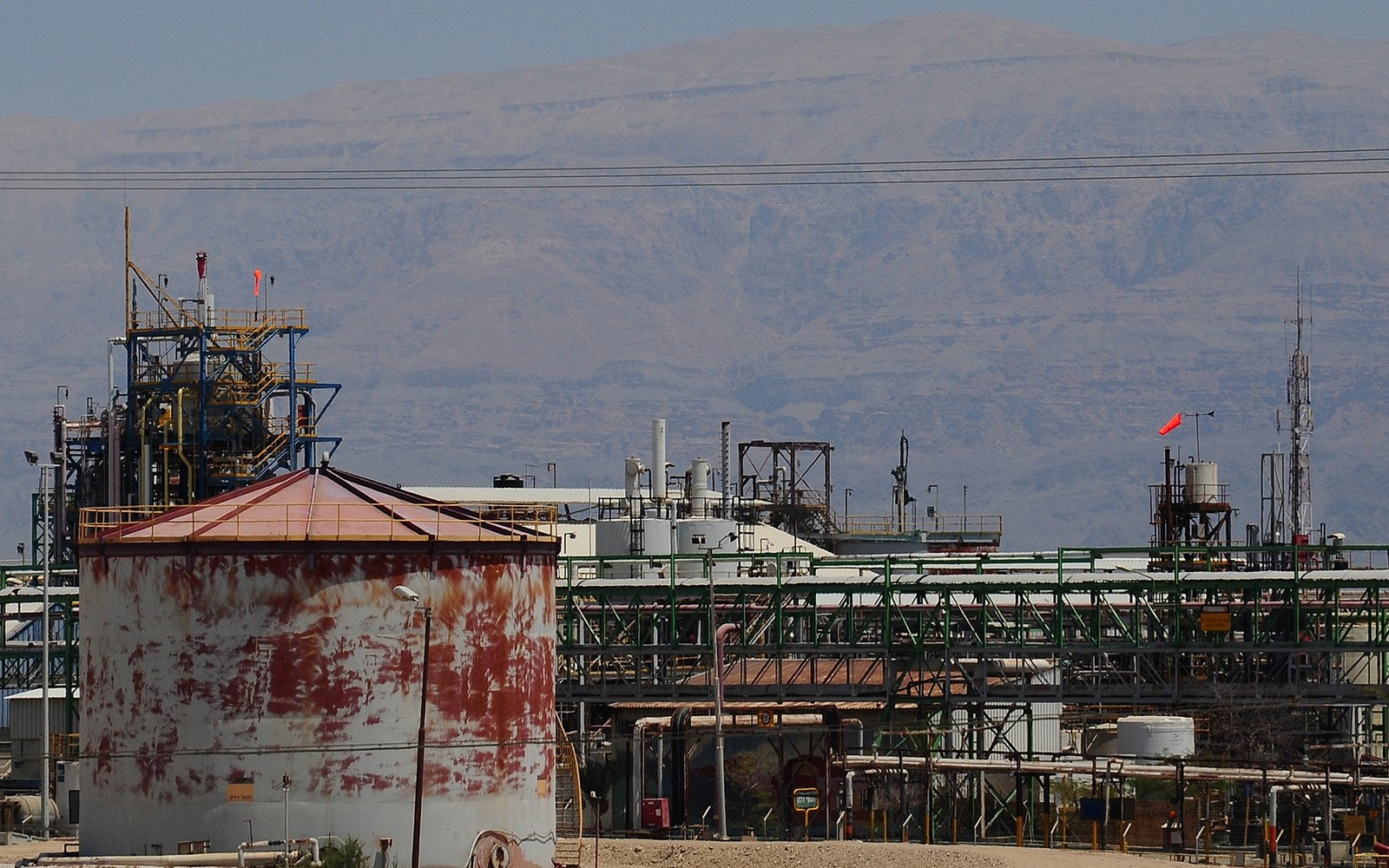Arousing the ire of Hadash and environmentalists alike, the Sheshinski 2 Committee published its final recommendations on policies for taxing natural resources, softening its approach from a previous draft. Finance Minister Yair Lapid tasked the committee, headed by economist Eytan Sheshinski, a professor emeritus at the Hebrew University of Jerusalem, last year with examining the state’s taxation and royalty policies for the exploitation of natural resources – excluding oil and gas, where the policies were previously determined by another panel Sheshinski headed.
The recommendations would apply to all firms developing the country’s resources, although much of the discussion focused on the largest stakeholder – the privatized Israel Corporation’s Israel Chemicals (ICL), which mines potash from the Dead Sea as well as phosphates and bromine in the Negev. The final report mandates that companies exploiting the country’s natural resources be charged a graduated tax rate on all “excess profits” – known as surtax – of between 25 and 42 percent, rather than a fixed 42% surtax, as was called for in the committee’s interim report, delivered in May. Maintaining their initial position on royalties, committee members recommended setting a uniform of 5%.
If adopted, these changes would come into effect on January 1, 2017, and would boost the state’s coffers by NIS 400 million annually – NIS 100m. Less than what was forecast under the proposal released in May. The expected government takes from the new recommendations would be 46-55% of revenue, the Finance Ministry said. Rather than imposing a uniform 42% surtax rate on excess profits, the new recommendations stipulate that an annual rate of return for the company involved of 14-20% would warrant a surtax of 25%, while a rate of return above 20% would result in a surtax of 42%. Royalty rates for natural resource exploitation, which today range between 2% and 10% based on mineral type, would stand at a uniform rate of 5% – which committee members determined is consistent with global conditions.
According to a “Globes” report, the committee’s recommendations would actually allow ICL to pay the state less than it does at present, as long as its rate of return remains below 14%. Citing a report drafted by the International Monetary Fund for the committee, the Sheshinski 2 members argued that Israel’s current resource taxation model caused the public’s profit share to be among the lowest in the world. The public’s share of profits arising from mineral mining in Israel has stood at 23% for the past seven years, whereas its share from profits from gas and oil amounts to more than 50%, the committee said. After hearing those recommendations, the company responded by freezing an investment program worth more than $1 billion, protesting that the high taxes would reduce its competitive edge globally. At the time it said that such changes would necessitate cost-cutting and layoffs.
At the beginning of September, ICL announced plans to close its magnesium factory near the Dead Sea in 2017. The factory employs 550 people, about 10% of the company’s total workforce. The company also discussed plans to downsize its bromine plant in the Negev, which employs another 1,200 people. In response to the final report by Sheshinski 2, the company said an initial reading indicated its recommendations “have not been altered in a substantive manner that would allow ICL to implement the investment plans in Israel that it intended to execute” before the panel’s establishment.
Environmental group Adam Teva V’Din (Israel Union for Environmental Defense) and the Movement for Quality Government in Israel criticized the Sheshinski 2 Committee’s final recommendations on Monday, claiming they are lenient towards capitalists. Both organizations called upon Knesset members to join the initiative, led by Knesset Social-Environmental Lobby Chair MK Dov Khenin (Hadash), to work to establish a parliamentary committee of inquiry to discuss the government’s abdication of its responsibility for Israeli natural resources.
According to the two organizations, the Sheshinski Committee granted excessive leniencies to Israel Chemicals, and violated its role. “The committee transgressed twice: the first time was when it focused only on the fiscal aspects of the natural resources, and did not examine the overarching resource management policy, and the second was when it again ceded to pressure applied by Israel Chemicals, which is responsible for a large part of the vast damage that has been caused to the Dead Sea in recent years,” said Adam Teva V’Din Executive Director Adv. Amit Bracha.
According to MK Khenin, “Today, it was again proven that there is no way other than to conduct an in-depth, broad investigation of the outrageous surrender of Israeli natural resources into the hands of tycoons. Israel Chemicals pressure succeeded in further softening the Sheshinski 2 Committee’s conclusions, and instead of a sharp rise in the low royalties to be paid on our natural resources, there is a reduction in the royalties to a real rate of less than 5%, through an easing and reduction of the surtax, which is intended to replace the royalties, and opens the door to tax planning”, he said.
Related:
MK Khenin sent a letter to Sheshinski demanding committee not to cave into capitalist pressure
MK Khenin: The budget for the Dead Sea rehabilitation like an aspirin to a cancer patient
Cabinet again rejects Khenin’s Dead Sea bill
Dead Sea petition reaches 16,000 signatures
MK Khenin: The Dead Sea is in a severe condition of dehydration and destruction
Hadash launches Dead Sea protection bill in Knesset
MK Khenin on the Dead Sea future: the polluter must pay



